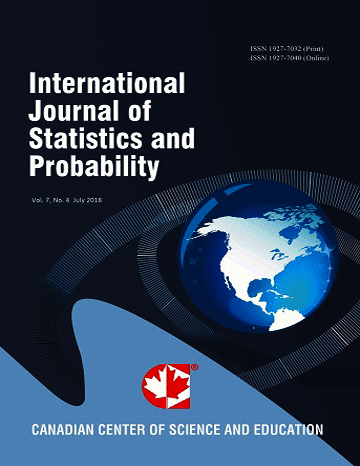The Importance of Type II Error in Hypothesis Testing
- Inmaculada Jiménez-Gamero
- Mohamed Analla
Abstract
Statistical tests of significance theoretically deal with two mutually exclusive hypotheses: the null and the alternative. However, at least in biomedical assays, only the null hypothesis is taken into account through type I error evaluation. But, basing these tests solely on type I error has two drawbacks: first, the probability limits (5%, 1% and 0.1%) arbitrarily set to the significance levels have no scientific justification. Second, acceptation of the null hypothesis is just a matter of chance, as it is mainly conditioned by the sample size due to its direct effect on the power of the test. In this sense, while the alternative hypothesis should be accepted due to its higher likelihood, the inference based on type I error alone would lead erroneously to accepting the null one. A numerical example illustrates how considering type I error alone, a same difference was declared non-significant first but turned out to significant thereafter when the sample size was increased. Therefore, the same null hypothesis was initially accepted and rejected afterwards. However when type II error was included in the test, the same decision was adopted no matter what the sample size was. This was possible through a reformulation of the alternative hypothesis. On the other hand, type II error may, in many cases have more far-reaching consequences than type I, and then should never be ignored, especially in assays dealing with human health, food, toxicity, etc.
- Full Text:
 PDF
PDF
- DOI:10.5539/ijsp.v12n2p42
Index
- ACNP
- Aerospace Database
- BASE (Bielefeld Academic Search Engine)
- CNKI Scholar
- DTU Library
- Elektronische Zeitschriftenbibliothek (EZB)
- EuroPub Database
- Excellence in Research for Australia (ERA)
- Google Scholar
- Harvard Library
- Infotrieve
- JournalTOCs
- Mir@bel
- Open policy finder
- ResearchGate
- Technische Informationsbibliothek (TIB)
- UCR Library
- WorldCat
Contact
- Wendy SmithEditorial Assistant
- ijsp@ccsenet.org
